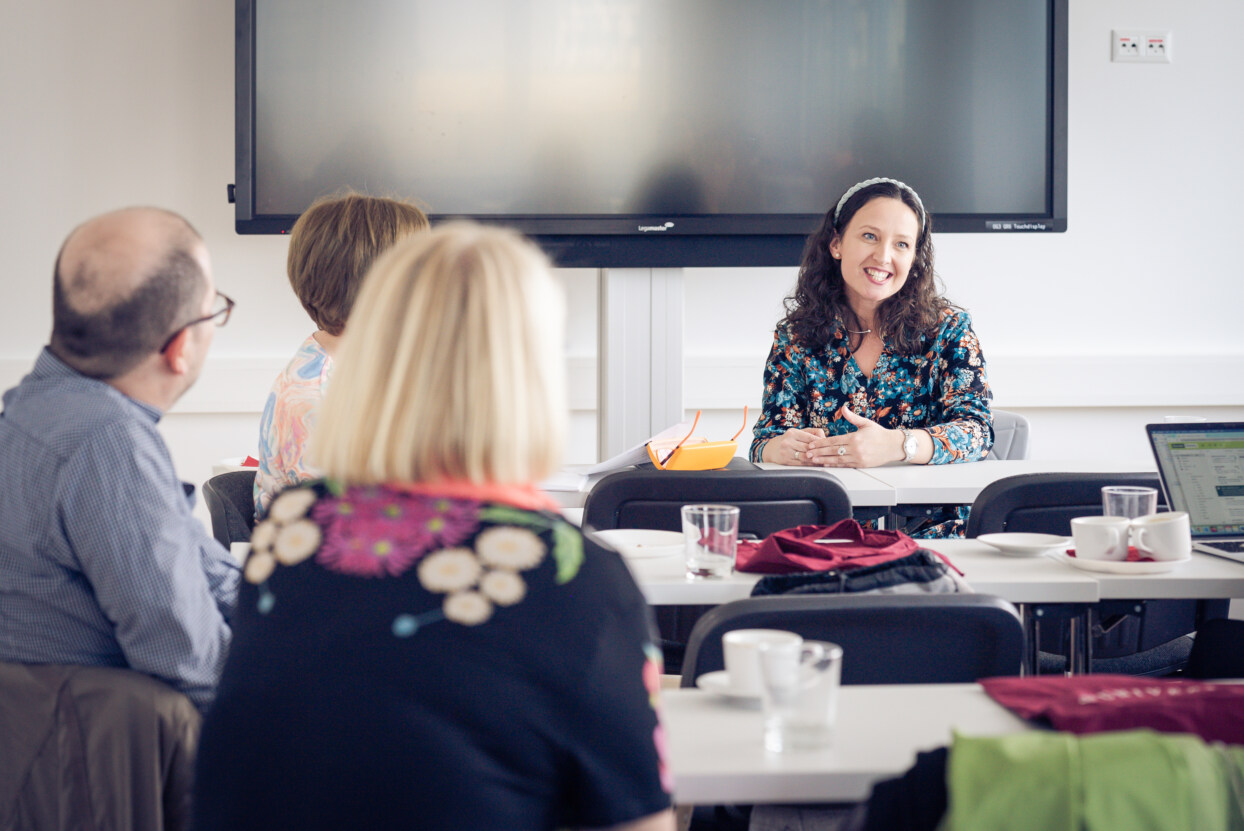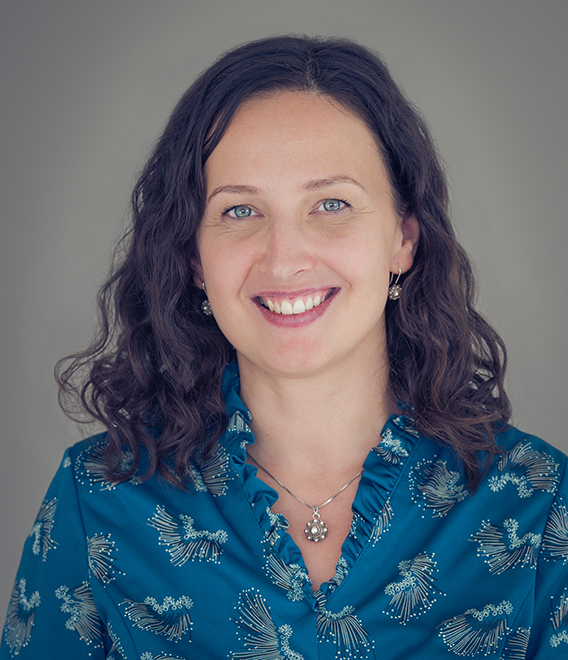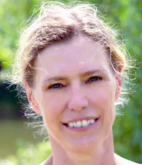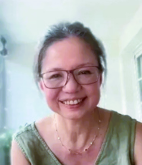 “Learning for Peace” is a new inspiring research project, led by Dr. Erzsebet Fanni Toth at the Faculty of Psychotherapy Science.
“Learning for Peace” is a new inspiring research project, led by Dr. Erzsebet Fanni Toth at the Faculty of Psychotherapy Science.
Funded by Erasmus+, the aim of this international cooperation is to understand and utilise discourses of traumatic past in education for avoiding conflicts in the future.
The first transnational event took place on 23rd March, 2023 at SFU Vienna. It hosted international experts from the field of psychotherapy science, psychology, social sciences and history, with a special focus on collecting and evaluating best practices and projects on trauma narration, processing and education.
On 14th September, 2023 a multilingual facilitator’s platform and training took place in Bratislava, Slovakia, where trauma-informed guidelines were developed and discussed, involving educators from both the formal and the civic sector. Learning4Peace – Bratislava (PDF, in English)
Project team
Project lead
 Ass.-Prof. Dr. Erzsébet Fanni Tóth, M.A. is the director of the Institute for Transgenerational Trauma Transfer Research, coordinator of the English-language doctoral programme in psychotherapy science, and lecturer in research methods and university didactics at Sigmund Freud University in Vienna. She studied psychology and cultural anthropology at Utrecht University in the Netherlands, sociology and sociocultural anthropology at Central European University, and earned her PhD in psychotherapy science from Sigmund Freud University.
Ass.-Prof. Dr. Erzsébet Fanni Tóth, M.A. is the director of the Institute for Transgenerational Trauma Transfer Research, coordinator of the English-language doctoral programme in psychotherapy science, and lecturer in research methods and university didactics at Sigmund Freud University in Vienna. She studied psychology and cultural anthropology at Utrecht University in the Netherlands, sociology and sociocultural anthropology at Central European University, and earned her PhD in psychotherapy science from Sigmund Freud University.
Contact: erzsebet.toth@sfu.ac.at
Project members
 Ágnes Székely has an academic background in teaching, language and linguistics. Inspired by her cross-curricular interest in psychology, sociology and linguistics, she worked as a researcher for the European Roma Rights Centre and for the Hungarian Institute for Educational Research and Development. She translated several books of literary fiction, and non-fiction on the subject of social psychology. Working for an international refugee assistance project, she monitored political, legal and organisational changes in the field of migration and refugees. She is currently working towards her Ph.D. in Vienna, investigating experiences of people who “wonder across languages”.
Ágnes Székely has an academic background in teaching, language and linguistics. Inspired by her cross-curricular interest in psychology, sociology and linguistics, she worked as a researcher for the European Roma Rights Centre and for the Hungarian Institute for Educational Research and Development. She translated several books of literary fiction, and non-fiction on the subject of social psychology. Working for an international refugee assistance project, she monitored political, legal and organisational changes in the field of migration and refugees. She is currently working towards her Ph.D. in Vienna, investigating experiences of people who “wonder across languages”.
 Nicole Chew-Helbig is a Singaporean certified Gestalt psychotherapist practising in Singapore and trained at IGWien / Sigmund Freud University in Vienna, Austria. She is a published psychotherapy researcher, specialising in Therapeutic Autoethnography, a methodology she developed at the doctorate level and published. Since 2019, Nicole runs a robust private practice in downtown Singapore. Her research interest is in practice based, culturally attuned inquiry.
Nicole Chew-Helbig is a Singaporean certified Gestalt psychotherapist practising in Singapore and trained at IGWien / Sigmund Freud University in Vienna, Austria. She is a published psychotherapy researcher, specialising in Therapeutic Autoethnography, a methodology she developed at the doctorate level and published. Since 2019, Nicole runs a robust private practice in downtown Singapore. Her research interest is in practice based, culturally attuned inquiry.
Method
This is not a classical research project but has a significant part devoted to social impact, stakeholder engagement and dissemination. It has a rather complex design instead of a specific research method.
Short outline of steps:
- Desktop research
- Engagement of experts at the workshop in Vienna, see report Learning for Peace – 1st Project Report (PDF)
- Development of expert recommendations guidelines
- Discussion of guidelines with experts and stakeholders from the formal and non-formal educational sector in the Central and Eastern European region (workshop in Slovakia)
- Formulation of evidence-based recommendations, methodology and toolkit on the implementation of oral history (accounts of traumatic, conflicting past) in formal and non-formal education (NGOs, museums etc. working with children and youth)
- Throughout the project: working with experts, who are expected to publish in academic journals
Question(s) and hypotheses
We are working with a complex problem that we observed. Namely, that despite the fact that interviews have been recorded with trauma survivors (e.g. of the Holocaust, but also of the WW2, revolutions, etc), these interviews sit in databases of academic institutions, and the knowledge conveyed by them is not channelled to the population, which could benefit from them. Moreover, taking the methodological side, we recognised that most of the trauma interviews were conducted by historians, trained in many aspects of being able to study the past, yet usually lacking to recognise the possible devastating psychological effect of verbalising long repressed traumas.
We at the Institute of Transgenerational Trauma Transfer Research are focusing on various sides of the utilisation of oral history narratives:
- that of the interviewer (who might suffer from secondary traumatisation if left unsupervised by a mental health expert),
- that of the interviewed, who might be triggered and retraumatised by the interview situation and the detailed set of questions, and
- that of the receiving end, the educators and their pupils/students, who are afraid of the traumatic accounts and without guidelines, are prone to avoiding first-person accounts of the past, preventing them also from teaching and learning from the past.
The general objective of the project is to streamline stories from the past into educational programmes with the aim of empowering people to look more critically at history and thus the current populist, aggressive political trends, which have been proven in the past to push societies into war and economic crisis. We aim to utilise discourses of traumatic past in education for avoiding conflicts in the future. Therefore, the main result of the project will be recommendations for educators for using stories recorded about past conflicts.
Project duration
1 Jan. 2023 – 31 Dec. 2023
Publications
Events
If you are interested in the project, please contact Ass.-Prof. Dr. Erzsébet Fanni Tóth at erzsebet.toth@sfu.ac.at.
#learning4peace
